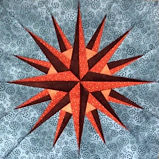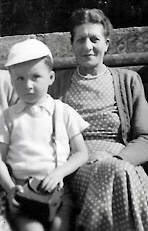Des Lewis will be 77 years old on 18 January 2025
Those who have read these episodic brainstorming reviews of mine must know they are very personal — rough-shod and spontaneous. Synchronicity and anagram mixed. I know they are not professional, never potentially publishable other than in the madness of my head, but I do hope they show grains of dark truth and cosmic panache.

These Des Lewis Gestalt Real-Time Reviews were founded in 2008.

‘What’s the loveliest word in the English language, officer? In the sound it makes in your mouth, in the shape it makes on the page? What do you think? Well now, I’ll tell you: E-L-B-O-W. Elbow.’ — THE SINGING DETECTIVE

“How shall a man find his way unless he lose it?” — Walter de la Mare

To any current genre author I have reviewed before — if you have a new story recently published or soon to be published in a collection or anthology, you may have a review by me of the story that also showcases where it is published. See HERE. (This is because I am no longer well enough to review as many books as I once did.)
Fresh Fictions, free to read HERE.
No AI input in preparation of my texts whatsoever.
THE NEW NONSCENIC
Photos here: https://conezero.wordpress.com/2024/02/24/d-f-lewis-recent-photos-1/
The many previous independent reviews of the individual story ‘Flowers of the Sea’: HERE
————————————————
My own previous reviews of Reggie Oliver’s books:-
The Wounds of Exile
THE DRACULA PAPERS: Book I: The Scholar’s Tale
Mrs Midnight
Virtue in Danger
And of his individual Stories in:-
Null Immortalis
The Horror Anthology of Horror Anthologies
Terror Tales of East Anglia
The Sixth Black Book of Horror
The Master in Café Morphine
Cinnabar’s Gnosis
Dadaoism
This Hermetic Legislature
A Child’s Problem
“…the set of Diderot which he had particularly requested…”
Having recently reviewed Diderot’s ‘Rameau’s Nephew‘ (as well as his ‘Jacques the Fatalist‘) you might easily imagine how I relished this story of a young nephew – and his Uncle who takes over guardianship of him in an atmosphere of religious angst where follies abound around a gothic abbey with its backstory emerging from tombs as well as from the manacles of Man’s slavery to Man as a counterpoint slavery to God. Yet, this often chilling scenario was almost too contrived, overly-crafted, as if, rather than Diderot, “someone calm and fastidiously detached” were talking to us instead. Someone with a chess mind.
Striding Edge
“There is always a fundamental mystery about the lives of others, a mystery that on the whole I like to preserve.”
…like stories, this story. The previous story was embedded in some religious and racial mystery: and without that mystery one cannot believe such situations could exist at all.
This is a perfect story, now, one where I won’t divulge the backstory or the later denouement, but one where our protagonist, the individual we follow into this more Aickmanesque mystery, is, like Hans Castorp in Mann’s Magic Mountain, experiencing a rite of passage, here toward a Lakeland rather than a Swiss peak, where he meets very coincidentally a couple of queer old school ‘friends’, one of them with a truly awful nose-gurgle as if from his lungs just like a patient in Castorp’s own mountain sanatorium…
Very English, though, not Germanic. But a story with a type of weird recruited society like that in this author’s marvellous novel, ‘Virtue in Danger’.
This is a gorgeously chunky book, full of artwork by the author.
Hand to Mouth
“…a gurgle of delight…”
This Author’s prose is as ever immaculate, limpid yet textured, almost too crafted! But that is not a complaint here as this story’s text evokes the chilling horror in a very literary-aesthetic way. One real complaint might be that the story plot itself is stylised, with the out of work actor going to chateau-sit in France for his cold cousin who has just bought the place, eerie happenings, long tract discovered by protagonist describing the chateau’s backstory, horrific denouement combining earlier happening with long tract, and the expression ‘hand to mouth’ used both figuratively and literally! But, even so, this story seems to carry something special, too, as further accentuated by its links to this book’s earlier ‘gurgle’ and black slavery.
Singing Blood
“Did you know that blood makes a noise when it spurts from the body? It is like a squeak with a slight hiss,…”
Or a gurgle? This story is a real gem, with an echo of the discursive ‘philosophers’ from that book I mentioned earlier, Mann’s Magic Mountain, a ‘palaver’ indulged by such minds about life’s meanings, echoing, too, this book’s earlier religious angst in competition with discussions of humanity and animality, nature and nurture, spirituality and science, good and evil – leading to a chilling description of an ‘evil’ man, a mass murderer, a man whom one of these ‘philosophers’ had met and shared playing together this book’s aforementioned detached game of chess.
This story is Germanic, taking place in bombed Berlin during the Second World War… and leads to the concept of ‘the two rivers of life and death’, a concept that will no doubt stay with you. A slavery to the body’s needs rather than the spirit’s…
But is not God the biggest mass murderer of all, harking back, as the reader might, to this book’s first story and its spiritual inner conflicts that are handled there …. which brings me in turn to the Eschatology, the Grief Ocean, the Botany of…
Flowers of the Sea
The slow death by a sea’s own biological ‘gurgle’ or froth-corruption? Or a portrayal of God as a mass murderer via prior torture of your and your loved one’s mind and consequent body? Minds-connected and -disconnected?
I may have a small axe to grind here, but, trying to be as objective as possible, I genuinely feel (and I have said this before) that ‘Flowers of the Sea’ is the greatest horror story ever written: creating – as it does with almost unbearable perfection – the ultimate horror of the human condition. It respectfully exploits the Horror Fiction genre at its optimum, with all that genre’s pervasive strengths, so as to conjure up this death-and-life experience at its most sensitised, as filtered through love and loss. And perhaps the two ‘rivers’ in the previous story reach the ocean itself with, say, a Lovecraftian force, transcending anything pulpish or gulpish or gurglish that such a concept may otherwise have entailed.
I was greatly disappointed that this story was not even nominated for any 2011 awards in the genre, as it so very much deserved.
An interview with the author: http://www.sfsite.com/12a/ro405.htm
Lord of the Fleas
This work is an eighteenth century quilt of documents from which to draw a gestalt or story about Virtue in Danger, and in spite or because of my gestalt real-time reviews normally doing this with whole books rather than with individual stories, I shall make this constituent review (of ‘Lord of the Fleas’) a quilt, too.
Dr Samuel Johnson (whose house I visited in Lichfield a few weeks ago when I was on holiday) says: “There was much talk of the dead gnawing at each other’s bones beneath the ground and suchlike.” — Cf those doing this in the sea of the previous story and later in ‘Lord of the Fleas’ this comparison becomes even clearer with a truly amazing passage about a huge ‘glass globe’…
“oak! oak!”
“…with manacles and chains,…” Cf the first story.
“With wisdom from Beneath we’ll strike the sky:
When Life‘s consumed, then Death Himself shall die.”
P143 ‘will […] will be a great man’ – a minor printer’s typo or the letter writer’s haste?
Astrological references that interest me. I recently read and reviewed the Man Booker Prize winner, ‘The Luminaries’ by Eleanor Catton, here, and it has now occurred to me that those enjoying that author’s work will enjoy Reggie Oliver’s. And vice versa. They share a happy kinship, I assess.
I love any fiction plot that uses a copy of ‘Tristram Shandy’ as a theatrical prop, as this story does.
Cannibalism (including the consumption of black skin) witnessed in this story as Hans Castorp witnesses it in his rite of passage during Mann’s Magic Mountain.
A dangerous inmate visited in bedlam. Cf the mass murderer earlier in this book.
“It was an insect and, as I later ascertained, a flea. This he raised above his open mouth and, by crushing the creature between his digits, sprinkled a tiny drop of foul fluid onto his tongue.” Cf the earlier hand to mouth & the book’s gurgle. And later a nose-less villain in this story itself.
Secret Doors. A Duel. “…dolts shambling in my wake.”
A story that is both funny and horrific, with some enjoyable visionary or gruesome purple passages (a la cold comfort farm?). You must read it.
And please read this story to discover how strangely Virtuelessness is Rewarded through an honourable ‘criminal conversation’ [in contradistinction to Richardson’s Pamela’s Virtue in Danger finally being Rewarded]………..
A new day … I am so pleased, nevertheless, that the individual story Flowers of the Sea has now found its optimum berth in this Tartarus book. Any of its failings of exposure in the past were down to me.
Meanwhile, FLEAS: FLowers of the SEA ?
This review will now continue HERE
Alternatively continued here: http://weirdmonger.livejournal.com/268173.html